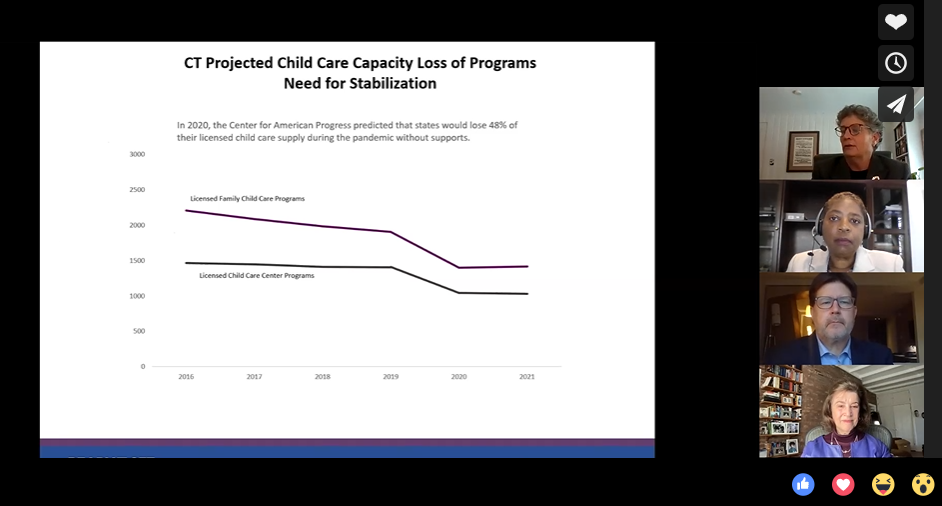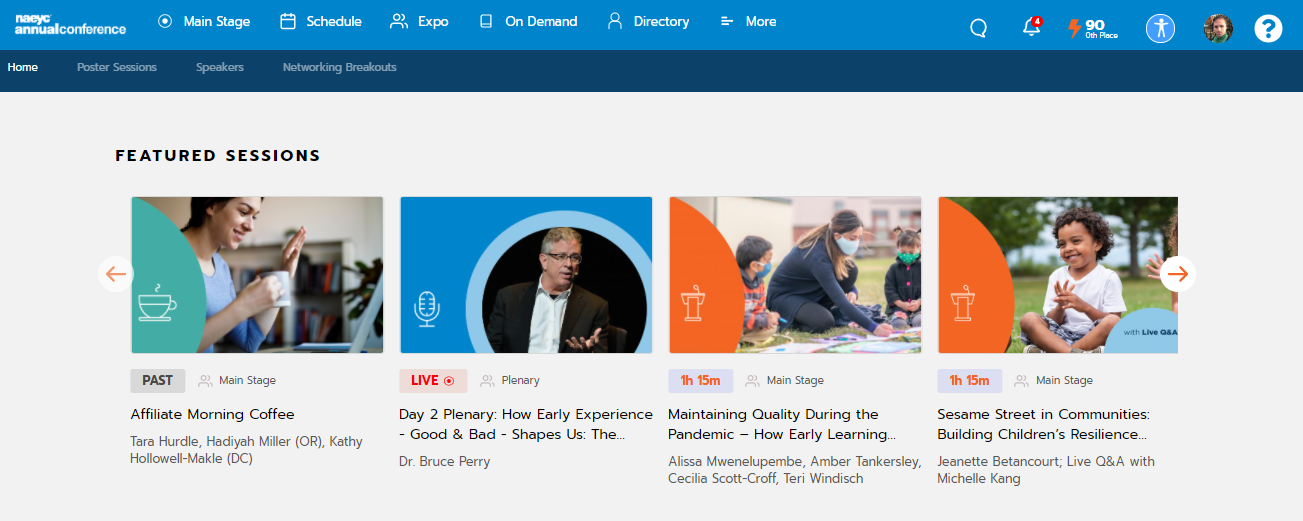NAEYC Conference Running Diary Day 1
I plan to keep taking some notes of the events I attend at this year’s NAEYC Conference. The title of each session I attended each day will be in bold while the bullet point notes I took during the session will be underneath
Innovation Amidst the COVID-19 Crisis: State Early Childhood System Leaders Develop a Cross-State Collaborative (speakers, Beth Bye, Ellen Gailinsky, Dr. Jamilah Jor’Dan and Dan Wuori)
During the pandemic of consortium of early childhood state commissioners and leaders was created with the support of The Hunt Institute to try to come up with solutions to meet the needs of ECE field
Challenge was to get federal funds to child care providers. Solution was to make the application process for funds simple and quick and use existing data to make it easier for providers to receive funds. In terms of getting funds to early educators, Beth Bye (CT EEC Commissioner) said that 25 percent of funds programs received would have to go to either salaries of child care providers or for providers' health insurance costs.
Jamilah Jor’Dan Illionius EEC executive director discussed using funds to make sure that family payments for child care were capped at 7 percent of the families income for most families with a sliding scale for families who are able to pay more. Illinois also was able to increase reimbursement rates for child care providers by over 3 percent. Moreover, the state paid providers based on child enrollment not child attendance during the pandemic in effort to keep more providers from going out of business.
Some states used federal funds to increase reimbursement rates even higher if a program was NAEYC Accredited as a way to improve quality.
A big challenge for states right now is they received a one time infusion of funds earlier this year, but they are not sure if any more federal funds will be available in the future
Illinois started to give $1000 bonuses to people who incentive people to work in the field
Right now more providers are in trouble across the country not because there is not a demand for children, but because they can’t hire enough staff
There was a decline in people’s use of Family Child Care providers the past decade, but the pandemic seemed to reverse that trend as people wanted their children to be in smaller groups with people they trusted but those shifts differed greatly from state to state based on policy.
Illinois was one the states that used discretionary funds the state received that could have been used on anything for infants through early childhood mental health consultation.
A Bright Star in My Mind: Creating a Story of Sorrow and Hope for Children with Bestselling Children's Book Illustrator and Author, Yuyi Morales
A lot of her books are inspired her own experiences as a Mexican-American immigrant and Mexican history and culture
Her book “Dreamers” tells a story with themes of migrants and the importance of libraries and giving children access to books.
For her follow up book Bright star she traveled to the United State/Mexico borderlands for research and to inspire her illustrations
A New Way to Build a Qualified Early Childhood Workforce hosted by Suzann Morris
Career pathways is not a new idea in ECE, but it is one with untapped potential.
Research shows that career pathways in ECE need to have multiple entry points for training and professional development. It could be for people just out of high school, people already working in the field for years, and in college,
Similarly, there needs to be multiple “return doorways” which is especially important now for people who might have left the field temporarily for other jobs and or to take care of loved ones
Having coaches and mentors to help people on their career pathway journey is important. People do best now when they get a coach for a single moment in time but when they can have a coach or mentor along their career path journey.
Educators need professional recognition that is portable
It is helpful for educators to be part of a cohort of educators as they get support on their career pathway
Competency development for early educators is needed for early educators on supporting meaningful interactions with young children
One career pathway model that has shown to be effective is “Registred Apprenticeships” which is a model being used in California and Texas that come combines on the job training with ongoing professional development
Community Colleges that offer both Associate and Bachelor Degree Programs have been shown to meet the ends of early educators more than other types of programs. In addition, they are often rooted in the community and are cheaper than other programs making them more accessible to early educators.
Co-hort based online programs have been effective as research shows that adults learn better with groups who they have connections with and can build trust and ask each other questions.
However, all the above needs to be supported by increased compensation and benefits for early educators or the field won’t be able to recruit and keep people
Highlights from the 4th edition of DAP: A Conversation with Chapter authors about equity and joyful learning (Speakers Brian Wright, Marie Masterson, Iheoma Iruka, Susan Friendman)
Equity includes support for linguistic diversity, children with disabilities, and removing barriers for all children to receive a quality education
One of the vignettes in the chapters talks about focusing on the schooling experiences of black boys because research has found that they are overly watched and often not made to feel welcomed in their own classroom. The chapter draws attention to the fact that often well meaning teachers might not have been prepared to work with them. The chapter discusses ways for black boys to feel like their voice is being honored and heard and how teachers can examine their own values and attitudes and how it impacts how they interact with black boys.
Teachers need to learn how to observe children well and objectively to really get to know each child on an individual level
Play materials and objects need to reflect the child’s culture but also challenge the child to promote joyful learning. If children are not being challenged, they can’t get the joys of achievement.
Select books with a purpose and books that reflect the children’s experiences and cultures; but books can also be a window for children to learn about other cultures.




